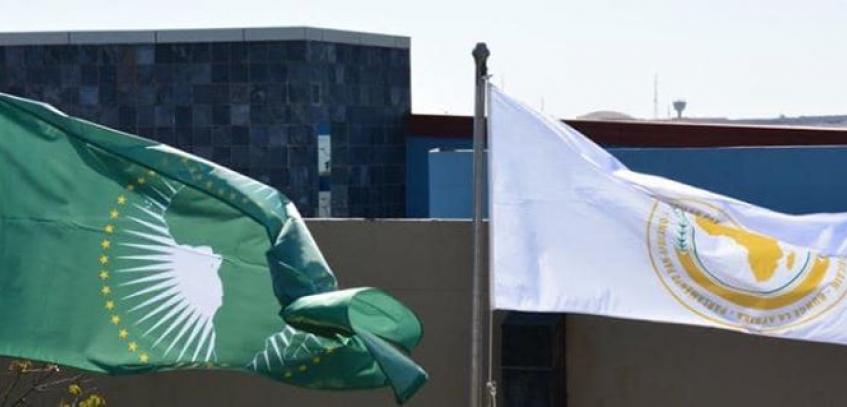The Pan-African Parliament (PAP) is set to lead the advocacy for implementation of the Abuja Declaration whereby African Union member states pledged to set a target of allocating at least 15% of their annual budget to improve the health sector and urged donor countries to scale up support.
This was disclosed by Hon. Senator Sylvia Mthethwa, Acting Rapporteur of the PAP’s Committee on Health, Labour and Social Affairs when she addressed delegates at the East and Southern Africa Inter-Regional High Level Webinar Session On “The Impact of Covid-19 on The Right Health: Addressing the legal and structural drivers of risk among the most vulnerable people”.
The objectives of this inter-regional webinar session was to bring awareness to the respective legal justice systems about the impact of Covid-19 on the right to health of the marginalised groups, to highlight the legal and structural drivers of risk which prevent marginalised groups from fully enjoying their right to health, to emphasise measures that can be adopted to protect marginalised groups during the Covid-19 pandemic and to assist marginalised groups with information on efficient and effective access to better healthcare systems and protocols.
“I am happy to share with you that the PAP is also in the process to start its advocacy in AU Member States for the implementation of the Abuja Declaration that requires at least 15% of National Budget to be allocated to the health sector. This programme will be supported by UNAIDS, the Global Fund and WHO,” said Hon. Mthethwa.
“As for the PAP’s contribution, we have adopted two important Resolutions in collaboration with the UNAIDS and the African Union Commission. The first one was adopted in October 2017 as an outcome of a “High-Level Parliamentary Meeting on “Fast Tracking HIV/AIDS and Leaving No-one Behind”. The second was adopted in May 2018 on the “The Role of Parliamentarians on Realizing the Right to Health And Achieving Health Targets In Africa. “
Hon. Mthethwa also commended the efforts made over the last decade on the African continent to come up with standard-setting and normative legal instruments such as the SADC-PF Model Law on HIV in Southern Africa; the SADC Model Law on Eradicating Child Marriage and Protecting Children already in Marriage; the East African Community HIV/AIDS Prevention and Management Act of 2012; the ECOWAS Minimum Legal Framework for Rights-Based Responses to HIV/AIDS, and the African Union Model Law on Medical Products Regulation adopted in 2016.
She further called for “bold political leadership to get us back on track with human rights and gender equality being in the centre of debate”.
“We need to mobilise national resources by front-loading investments, particularly in the health sector and through innovative mechanisms such as tax and fiscal space, and corporate social responsibility including equal access to COVID19 vaccine and national health insurance. Advocate for the training needs and sensitization of health professionals in addressing stigma and discrimination in health facilities towards people living with HIV/AIDS, TB and Malaria.
“Promote the enactment of laws that explicitly criminalize all forms of violence against women and girls, including sexual violence, forced sterilization of women and girls living with HIV, forced and early marriage and female genital mutilation,” she added.
She also challenged UNAIDS and its Co-sponsors, the civil society organizations, Foundations, the private sector, and national human rights Institutions to enhance the capacity of Parliamentarians to monitor all policies and programmes as well as the budgetary and legislative activities as a way to strengthen partnership with Members States.








